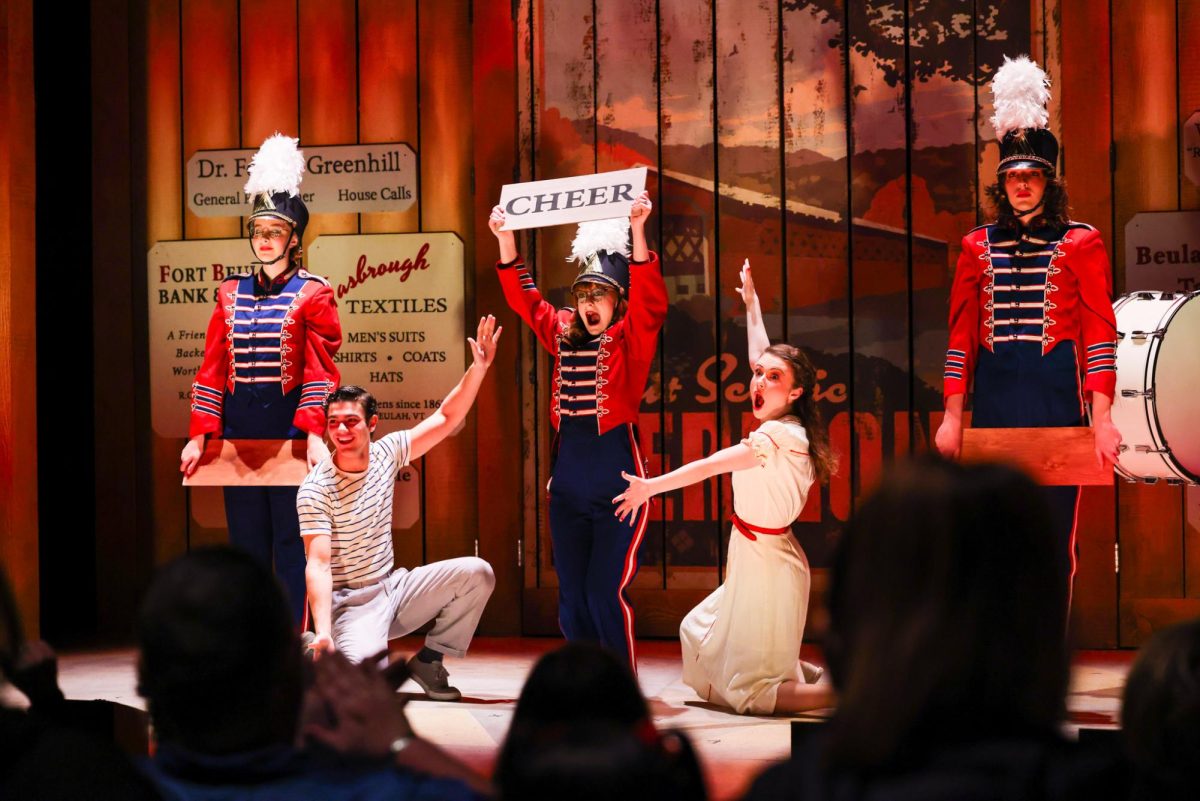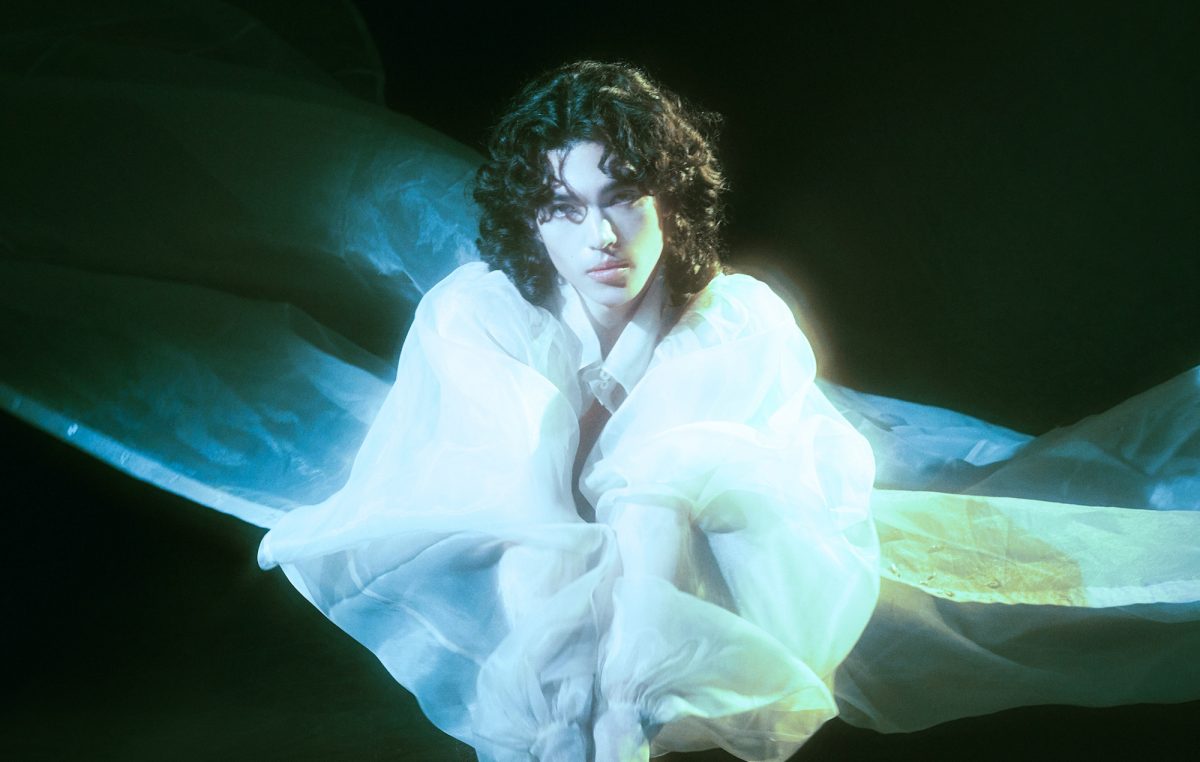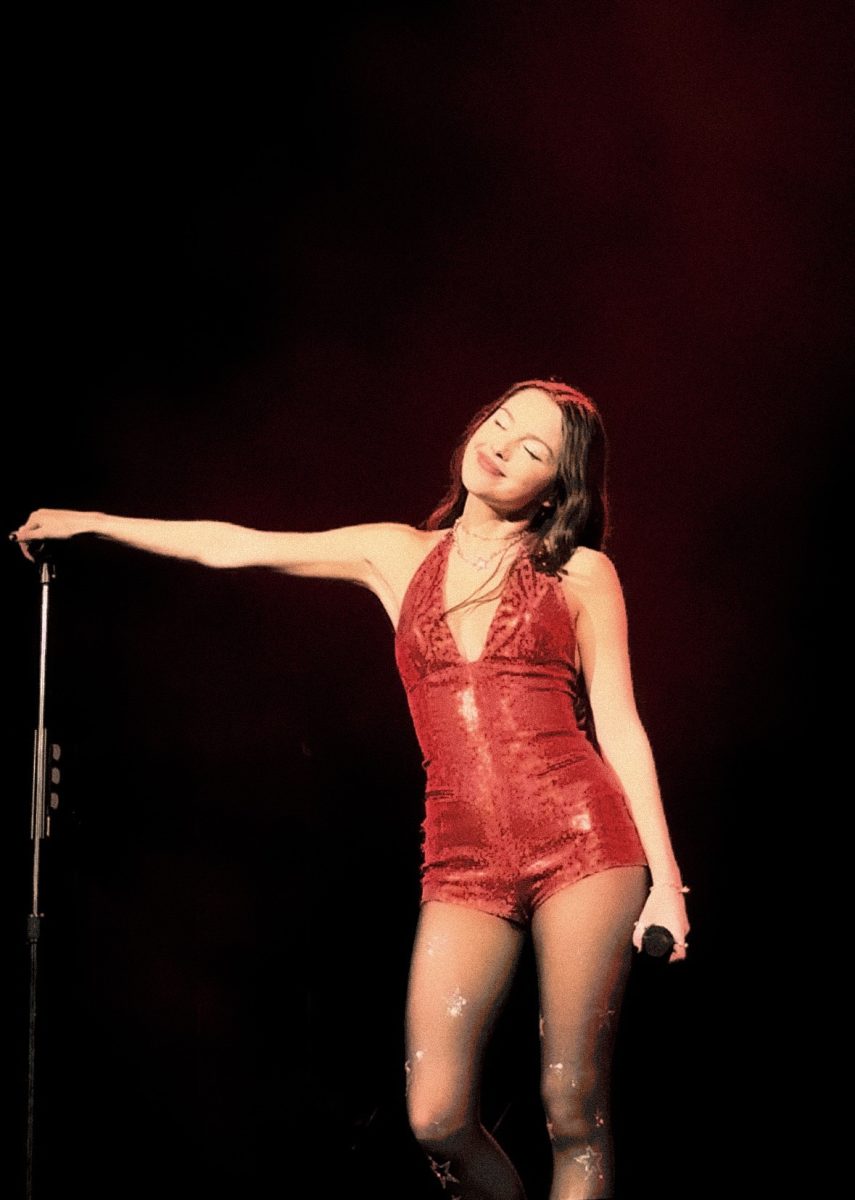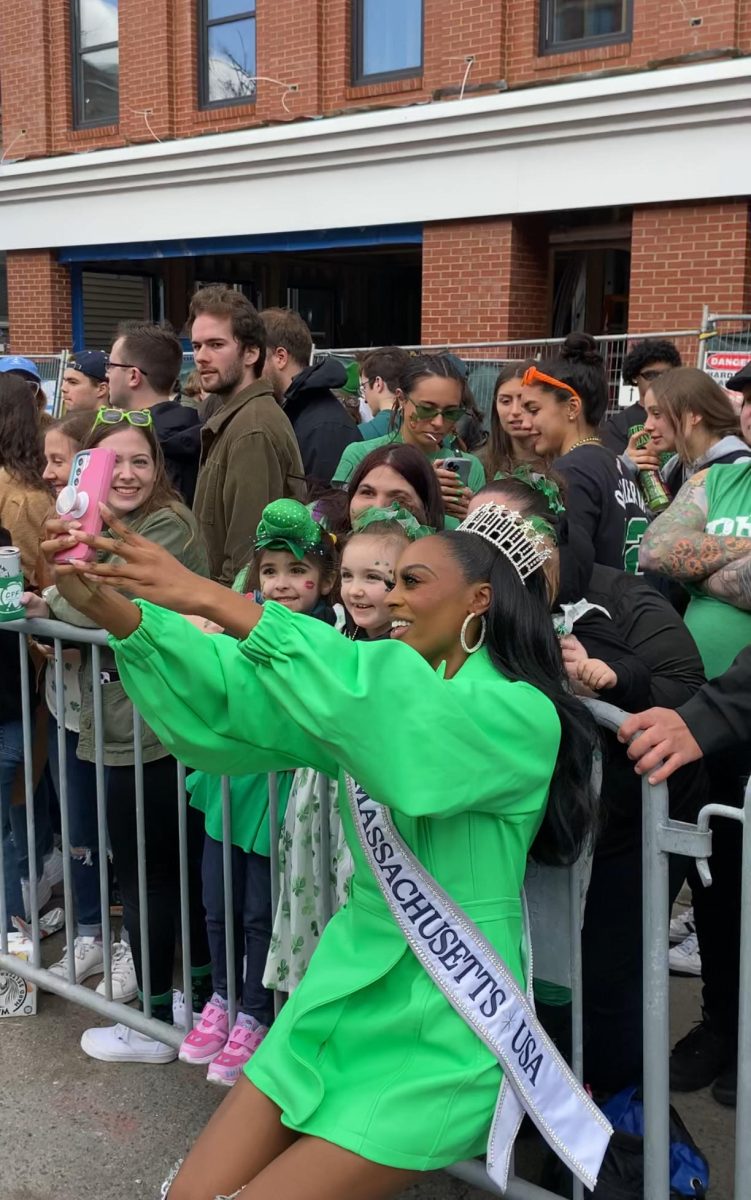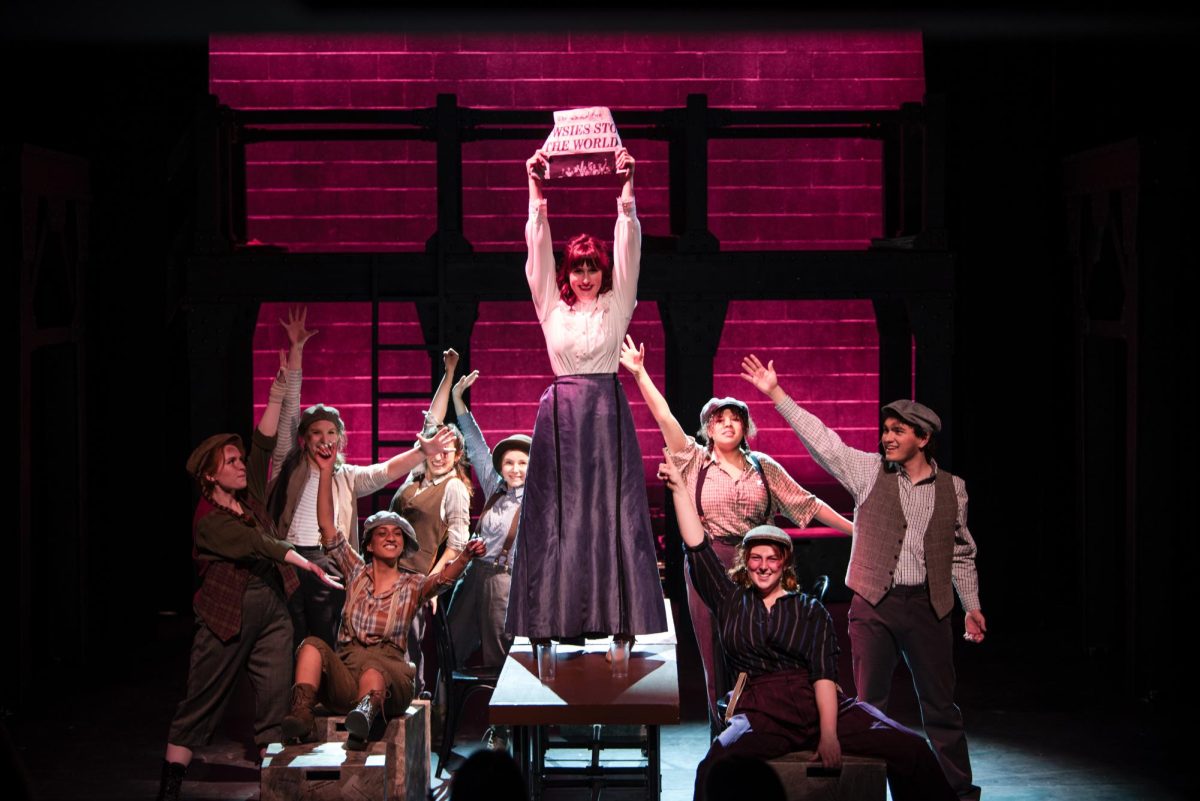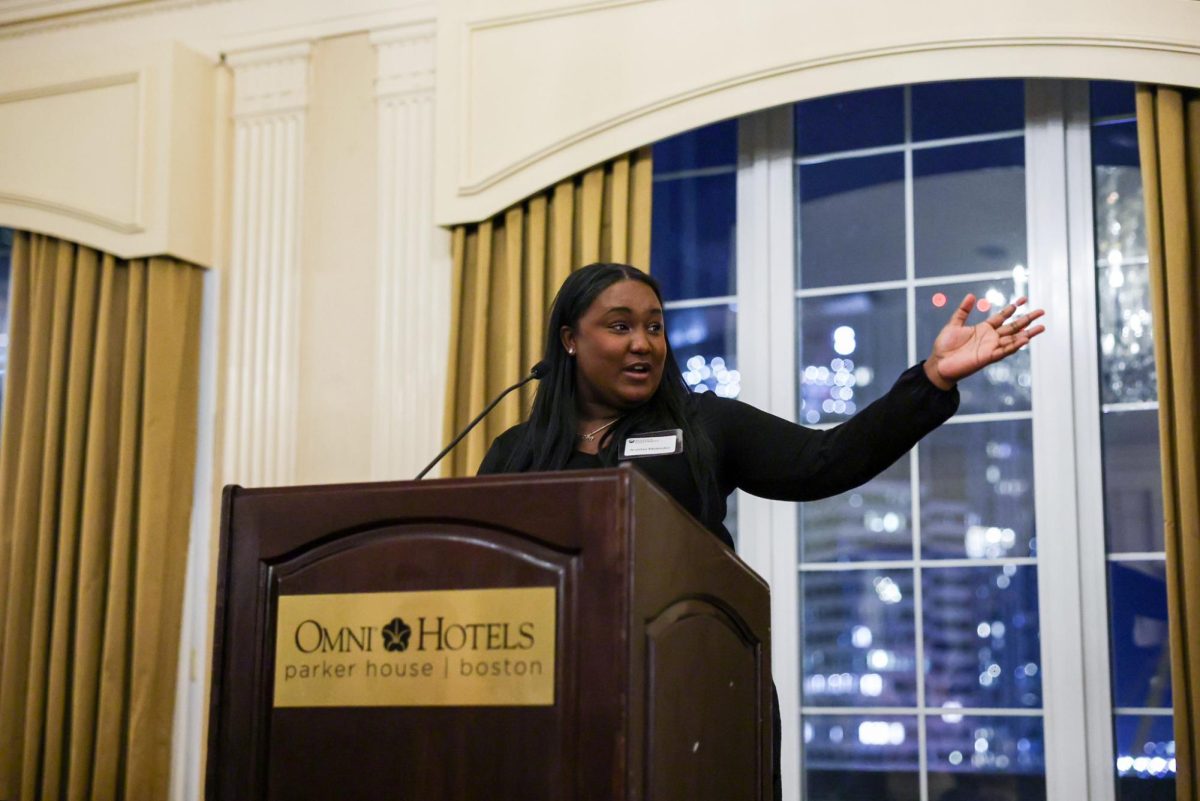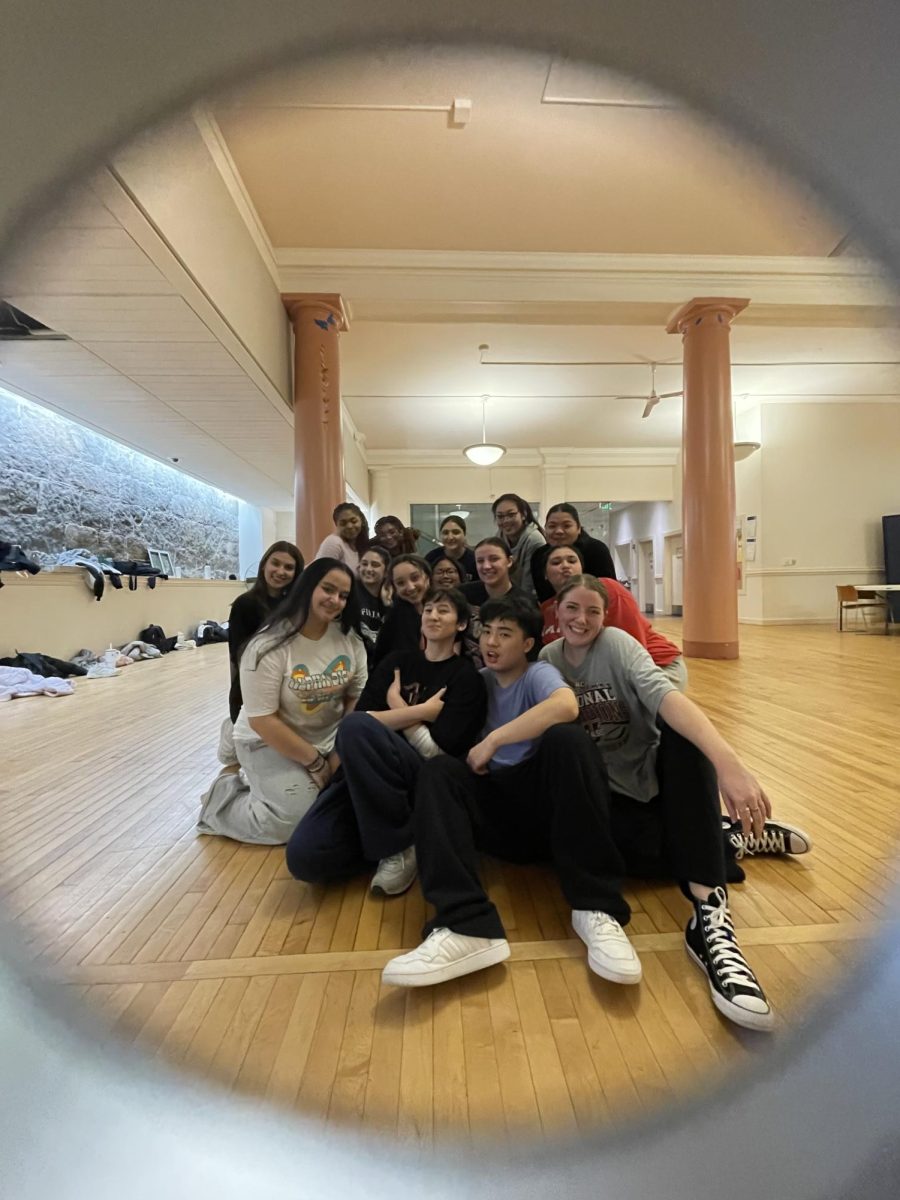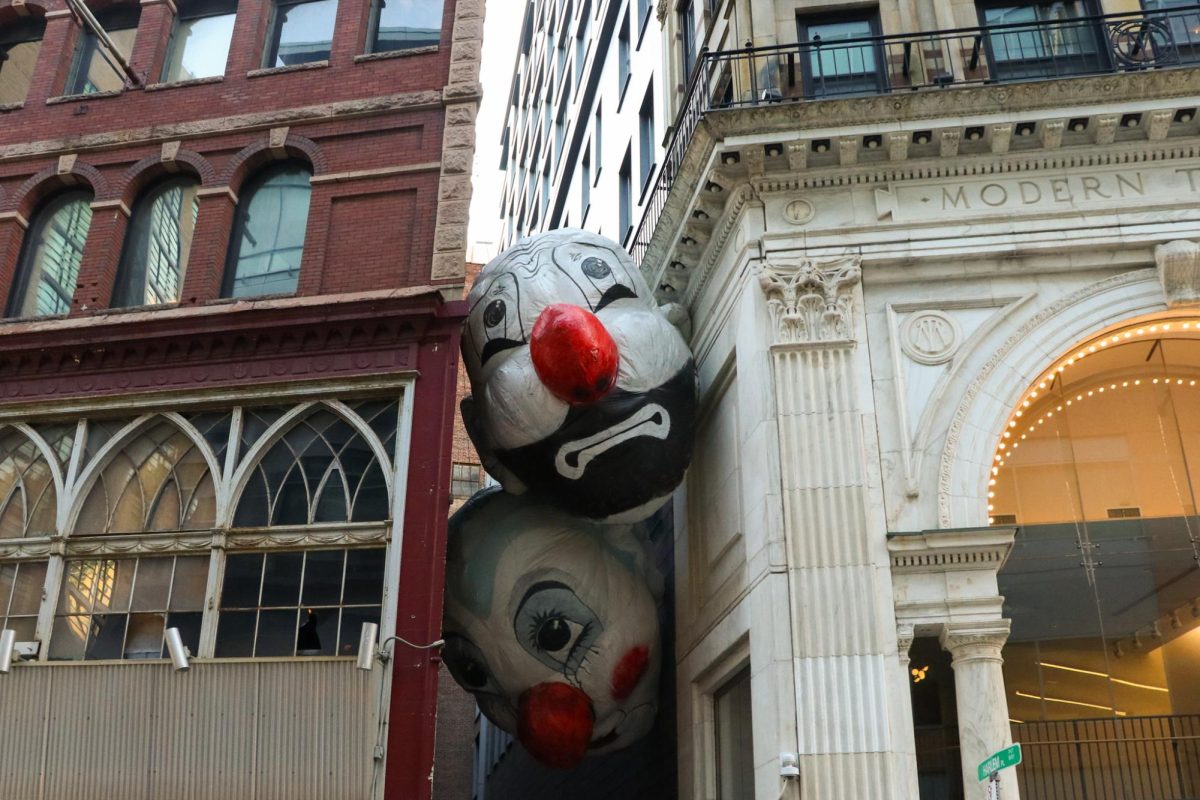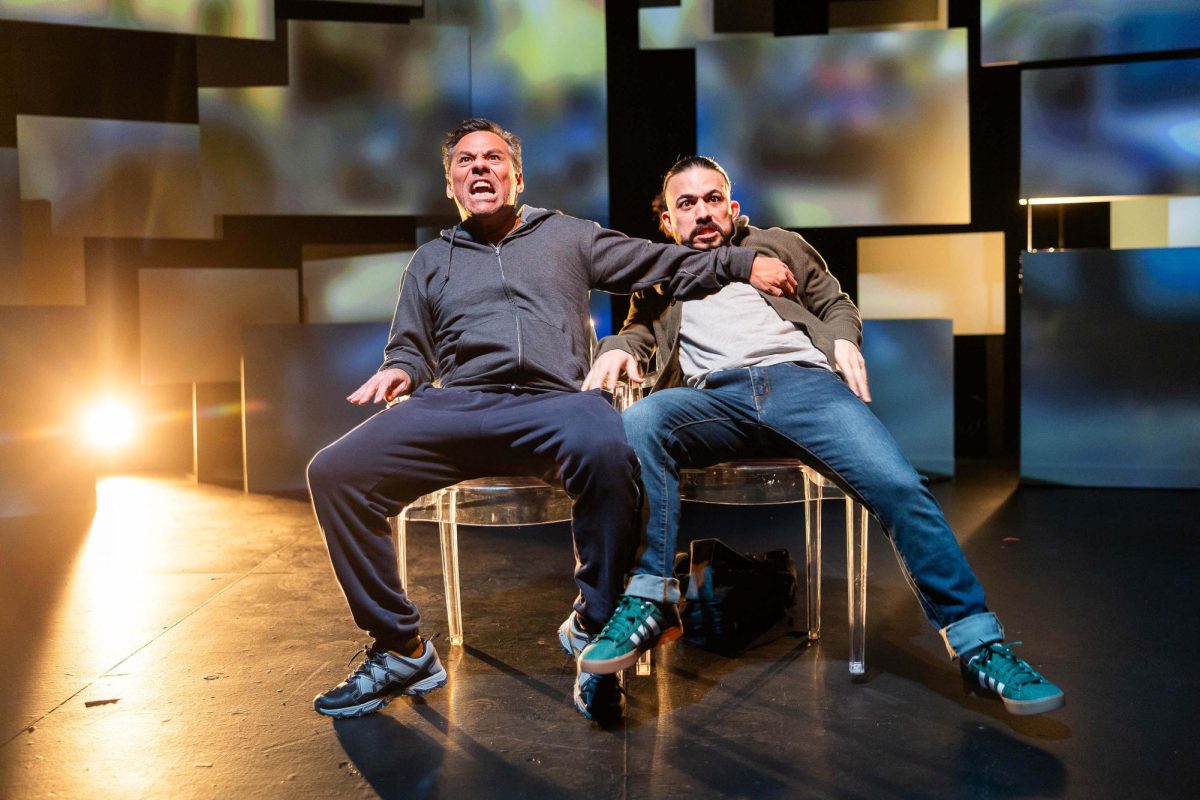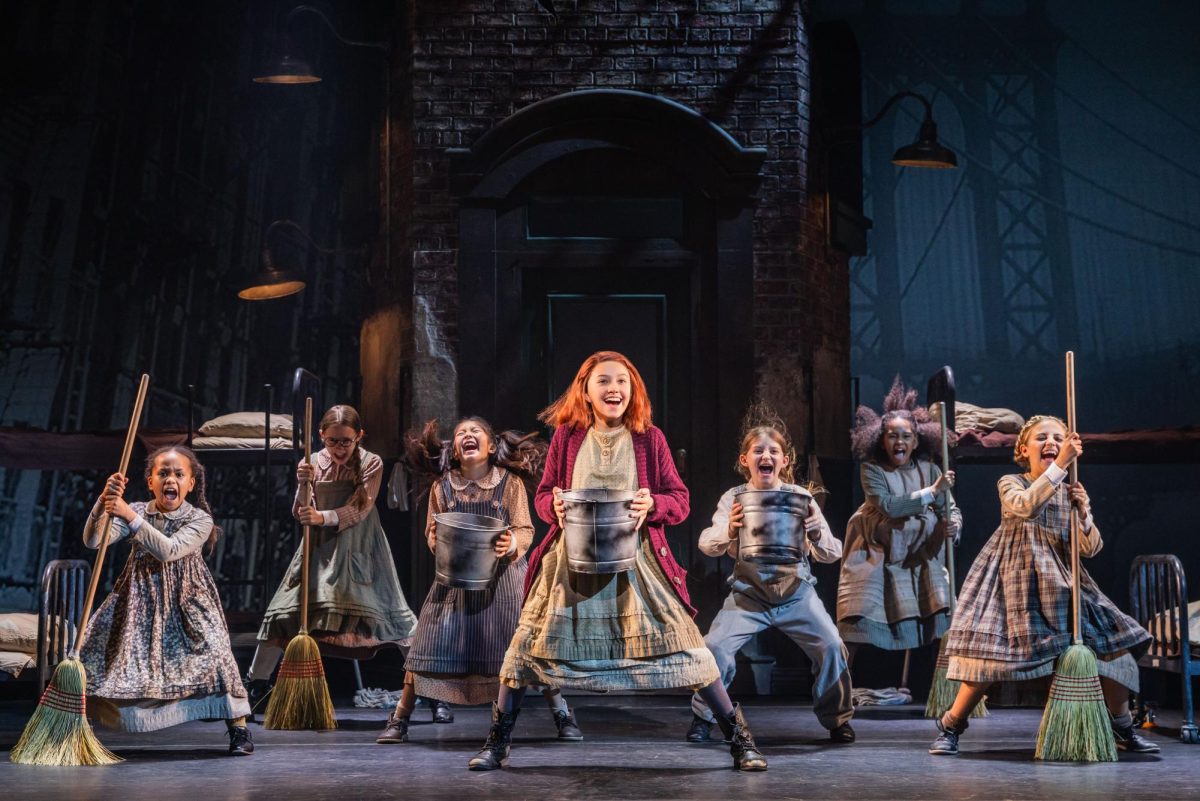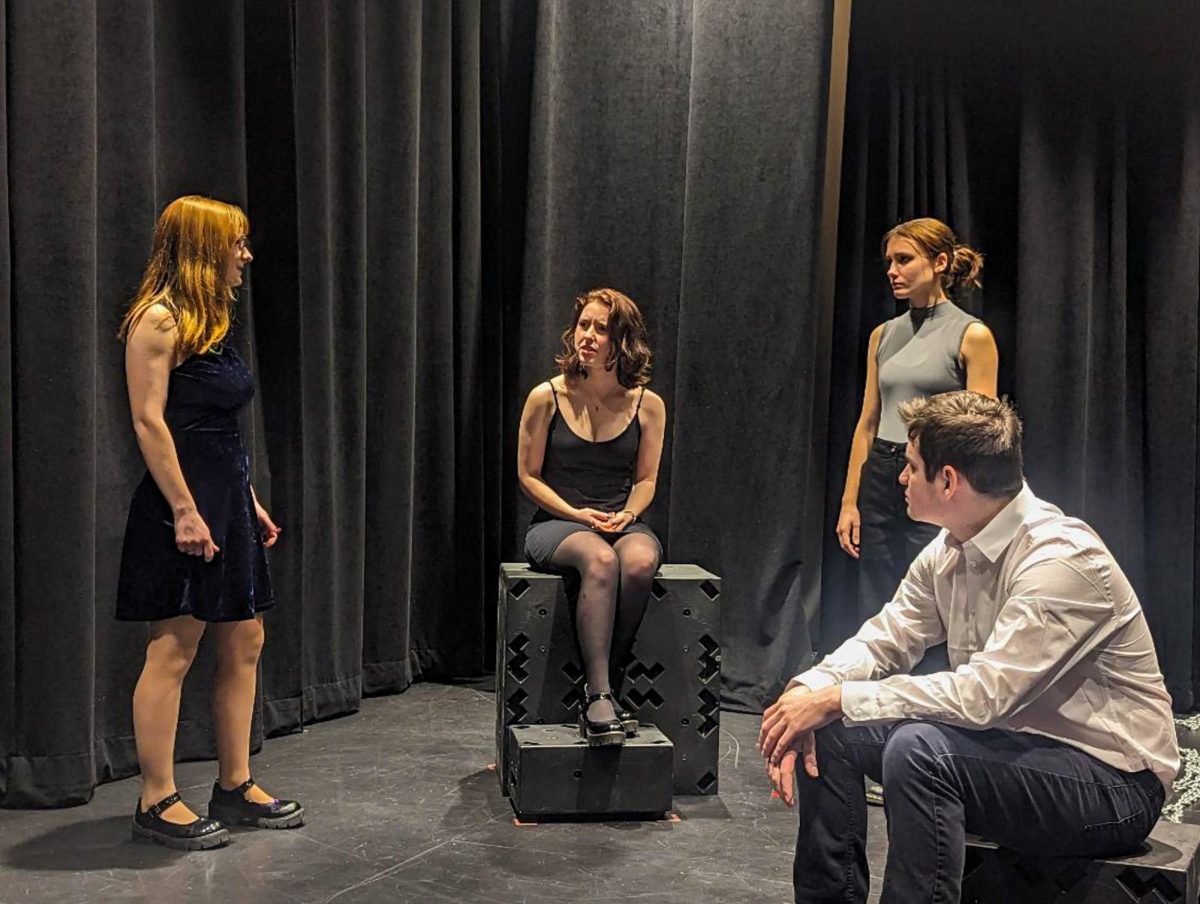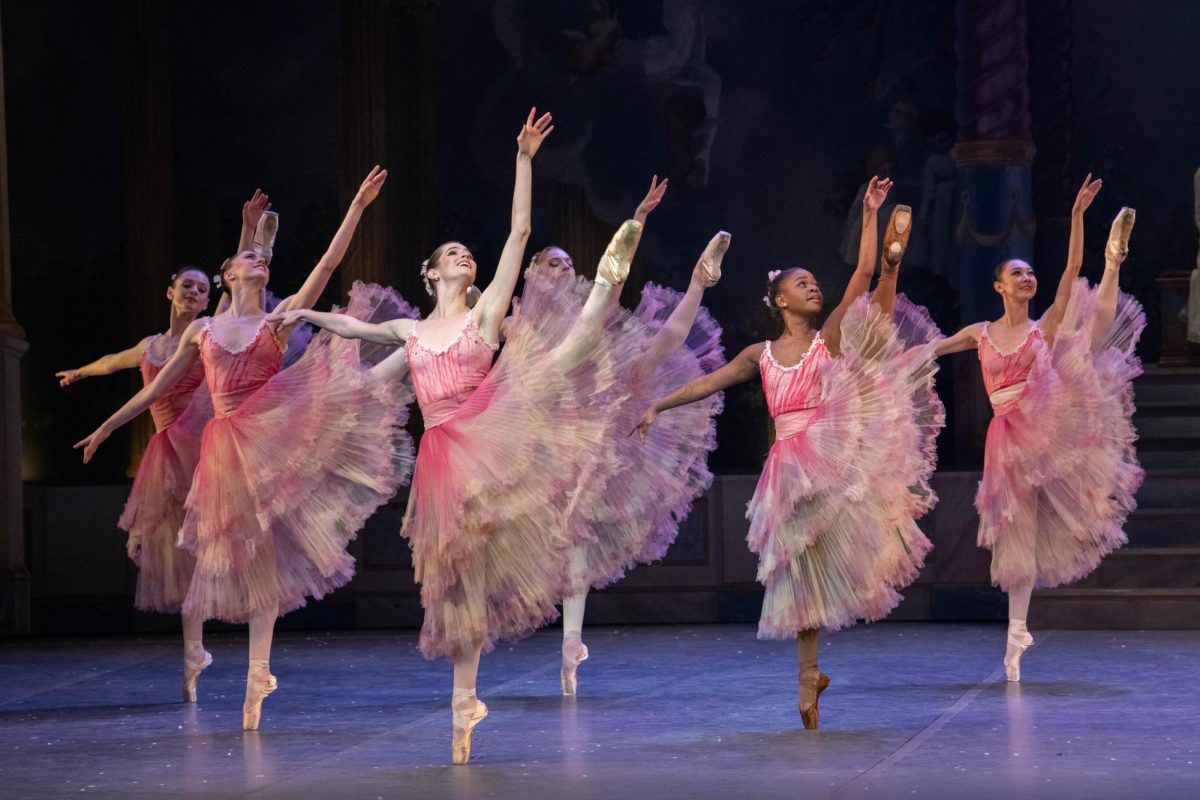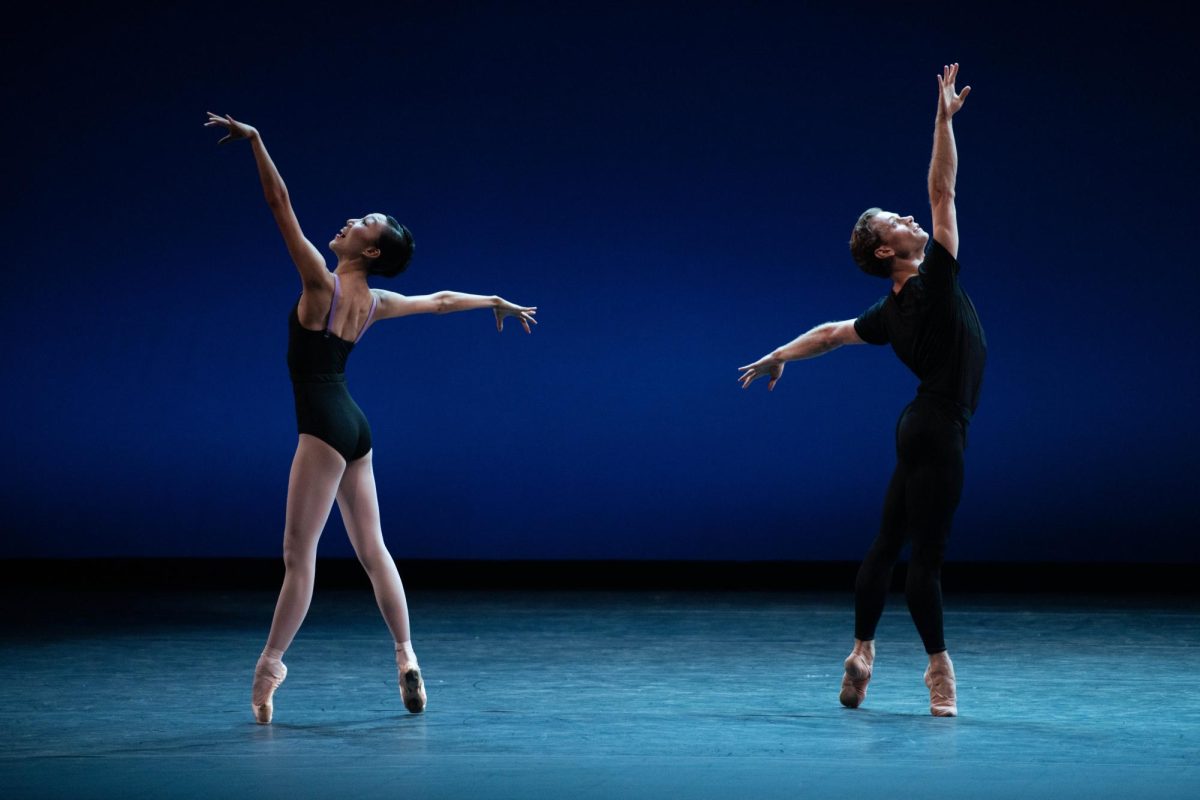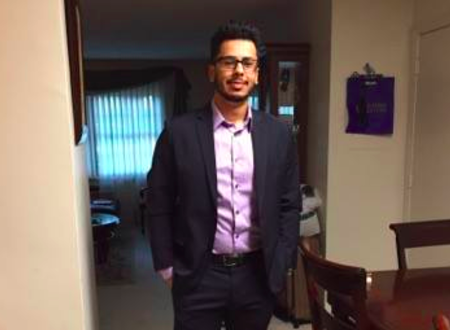The Suffolk University Fall Showcase, hosted by the Theatre Department, had the audience travel back in time to understand the present and think about the future. Three student-written and directed plays were performed in Sawyer’s new Studio Theatre.
The first play, “Sälem,” written by Andrew Borque and directed by Annalise Fosnight, follows the experiences of three sisters who practice witchcraft during the Salem Witch trials. The unique circumstance of splitting the creative differences only enhances the play. Borque’s knack for keeping the plot moving and diverting the audience’s expectations paired really well with Fosnight’s creative direction. A first-time director she effectively used the audience section as though it were a part of the woods, concealing the witchcraft taking place, and the congregation that takes place for the trial.
“Working with a small tight knit cast, learning how I thrive as a director, and learning how to get into the scene with people and help them find their way through the scene was a fun and interesting process,” said Fosnight in an interview with The Suffolk Journal.
“I’m a melodramatic writer, I like it because it’s fun. You can do a lot of crazy stuff with it,” said Borque. This melodrama is brought to life because of the work done by the cast, who all settled into their roles and made believable performances. Each performer displayed a wide range of emotions and portrayed the action convincingly.
The second play, “Déjà Vu,” written and directed by Jack Yeatman, depicts how a group of friends handle the oncoming war and the anxiety the draft can incite. The play travels through the decades following these five friends as they cope with the idea that some of them will be drafted into the war. Time travel is achieved visually and the characters make no mention of the era they’re in until the end of the play. They began in a room from decades ago, and as the plot progressed, music was played to mark the passage of time and the décor was stripped to reveal a contemporary living room.
“It’s interesting because I enjoy writing but it’s also difficult. It’s only a fifteen page play and it took me a year and a half to write, edit, and get everything together,” said Yeatman.
He told The Journal that he took inspiration from his own life where many of his family members were in the military, and he focused on the people surrounding those who do go off into war. This is where cast succeeds in illustrating the anxieties and the difficulties coping with the idea of being drafted into the war. They terrifically dramatized the emotions, ranging from disappointment of a friend enlisting, to the laughter that comes from being tickled. The performances encourage the audience to empathize with the experiences.
The third play, “queer,” written and directed by Maggie Bie, has Adam and Eve traveling through time to rediscover the lost history of LGBTQ+. As the pair travel through time they discover not only the atrocities that queer people have endured, but the progress they have made towards reclaiming equality. These trials of love culminate to the Pulse Nightclub shooting, where the leads are compelled to face their own fears of loving their respective partners. Bie, despite having the largest cast, was able to use every inch of the stage to the fullest effect.
“There’s four leads and ten ensemble members, so it was something I never dealt with before and overwhelming at times because there were so many parts that needed to happen in a quick rehearsal process that I had to coordinate,” said Bie.
The emotionally charged performances by not only the leads but by the ensemble, only enhance queer’s already great script. The ensemble did not just merely fill in the space when the leads were unavailable, they kept the audience’s attention with their performances.
“It’s a funny show and meant to be enlightening, but there are a lot of dark moments in the show. I think I do a good job being serious when it needs to be by lightening up some of the darker moments,” said ensemble member Nick Cenci in an interview with The Journal.
Each director and writer subscribe to the notion that history is important to teach the world about the issues they remain ignorant to.
“The way people are being judged by the way they look and how they act has happened for years, so I think it’s important to rethink our values,” said Fosnight. This need for change is reinforced by Yeatman.
“I wrote this show largely as a warning if things go poorly this election. These are things that could very soon become the reality of our lives – not exactly how it occurs in my show,” said Yeatman.
“The LGBTQ+ history isn’t the history that’s ever told, unless you take a specific class like women gender studies. So I think it’s important to get it out there especially in a manner that’s accessible and I try to normalize it through the show so that people who don’t know about it or might be against it, won’t come in saying they are repulsed by this and instead say ‘I actually did learn something,’” she said.
Whether it was the underlying theme or the performances themselves, this Fall Showcase was impressive.


